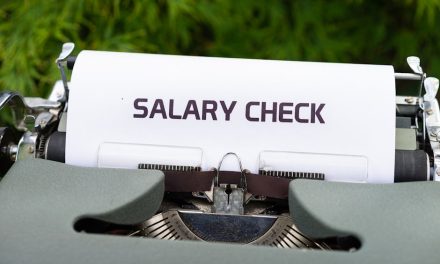Table of Contents
- Introduction
- Behavioral Interview Questions
- Problem-Solving Interview Questions
- Leadership Interview Questions
- Communication Skills Interview Questions
- Teamwork Interview Questions
- Adaptability Interview Questions
- Decision-Making Interview Questions
- Conflict Resolution Interview Questions
- Technical Skills Interview Questions
- Q&A
- Conclusion
“Unlock the potential of your team with the right questions.”
Introduction
Introduction:
When it comes to hiring the right candidates for your organization, asking the right questions during the interview process is crucial. To help you identify the best fit for your team, we have compiled a list of the top 30 strategic interview questions that will help you assess a candidate’s skills, experience, and cultural fit. These questions are designed to delve deeper into a candidate’s qualifications and provide valuable insights into their potential contributions to your organization. Use these questions as a guide to conduct more effective interviews and make informed hiring decisions.
Behavioral Interview Questions
Behavioral interview questions are a crucial component of the hiring process, as they provide valuable insights into a candidate’s past behavior and how they may perform in the future. By asking strategic questions that delve into a candidate’s experiences, skills, and values, employers can better assess their fit for the role and the organization. In this article, we will explore the top 30 strategic interview questions for hiring candidates, focusing on behavioral questions that can help employers make informed hiring decisions.
One key area to explore in a behavioral interview is a candidate’s problem-solving skills. Asking questions that require candidates to describe a challenging situation they faced and how they overcame it can provide valuable insights into their ability to think critically and creatively. For example, you could ask a candidate to describe a time when they had to solve a complex problem under pressure and how they approached the situation.
Another important aspect to consider is a candidate’s ability to work well with others. By asking questions that delve into a candidate’s teamwork and collaboration skills, employers can assess how well they will fit into the existing team dynamic. For instance, you could ask a candidate to describe a time when they had to work with a difficult team member and how they handled the situation.
In addition to problem-solving and teamwork skills, it is also important to assess a candidate’s leadership abilities. By asking questions that explore a candidate’s experience in leading teams or projects, employers can gauge their potential for future leadership roles within the organization. For example, you could ask a candidate to describe a time when they had to take charge of a project and how they motivated their team to achieve success.
Furthermore, it is essential to assess a candidate’s adaptability and resilience. In today’s fast-paced and ever-changing work environment, employees need to be able to adapt to new challenges and bounce back from setbacks. By asking questions that explore a candidate’s ability to handle change and adversity, employers can determine how well they will thrive in a dynamic work environment. For instance, you could ask a candidate to describe a time when they had to quickly adapt to a new situation and how they managed the transition.
Overall, behavioral interview questions are a powerful tool for assessing a candidate’s fit for a role and the organization. By asking strategic questions that delve into a candidate’s problem-solving skills, teamwork abilities, leadership potential, adaptability, and resilience, employers can gain valuable insights into their past behavior and how they may perform in the future. The top 30 strategic interview questions outlined in this article can help employers make informed hiring decisions and build a strong team of talented and motivated employees.
Problem-Solving Interview Questions
When it comes to hiring new employees, one of the most important aspects to consider is their problem-solving skills. Being able to think critically, analyze situations, and come up with effective solutions is crucial in today’s fast-paced and ever-changing work environment. To help you assess a candidate’s problem-solving abilities, we have compiled a list of the top 30 strategic interview questions that you can use during the hiring process.
1. Can you walk me through a time when you faced a challenging problem at work and how you went about solving it?
2. How do you approach complex problems that require innovative solutions?
3. Give an example of a time when you had to think on your feet to come up with a quick solution to a problem.
4. How do you prioritize tasks when faced with multiple problems that need to be solved simultaneously?
5. Describe a situation where you had to work with a team to solve a problem. What was your role, and how did you contribute to the solution?
6. How do you handle disagreements or conflicts that arise when working on a problem-solving task with others?
7. Can you provide an example of a time when you had to think creatively to come up with a solution that was outside the box?
8. How do you ensure that the solutions you come up with are practical and feasible to implement?
9. Describe a situation where you had to troubleshoot a problem that seemed unsolvable at first. What steps did you take to eventually find a solution?
10. How do you stay calm and focused when faced with a high-pressure problem-solving situation?
11. Give an example of a time when you had to make a tough decision in order to solve a problem. How did you weigh the pros and cons before making your decision?
12. How do you evaluate the effectiveness of the solutions you come up with? What metrics or criteria do you use to measure success?
13. Describe a situation where you had to adapt your problem-solving approach midway through the process. What prompted this change, and how did it impact the final outcome?
14. How do you stay updated on new problem-solving techniques and strategies? Can you give an example of a time when you applied a new approach to solving a problem?
15. Give an example of a time when you had to troubleshoot a technical issue. How did you go about diagnosing the problem, and what steps did you take to resolve it?
16. How do you handle situations where the solution you come up with is not well-received by others? How do you navigate resistance and pushback?
17. Describe a situation where you had to balance the need for a quick solution with the importance of thorough analysis and planning. How did you strike this balance?
18. How do you ensure that the solutions you come up with are sustainable in the long term? What factors do you consider when evaluating the long-term impact of your solutions?
19. Give an example of a time when you had to think strategically to solve a problem that had far-reaching implications for the organization. How did you approach this challenge?
20. How do you handle situations where the problem you are trying to solve is constantly evolving or changing? How do you adapt your approach to keep up with these changes?
21. Describe a situation where you had to collaborate with stakeholders from different departments or teams to solve a problem. How did you ensure that everyone’s input was taken into account?
22. How do you handle situations where the solution to a problem is not immediately obvious? What steps do you take to break down the problem into manageable parts?
23. Give an example of a time when you had to think strategically to anticipate potential problems before they arose. How did you proactively address these issues?
24. How do you ensure that the solutions you come up with align with the organization’s goals and objectives? What steps do you take to ensure that your solutions are in line with the company’s strategic direction?
25. Describe a situation where you had to think creatively to come up with a solution that had a limited budget or resources. How did you work within these constraints to find a viable solution?
26. How do you handle situations where the problem you are trying to solve is outside of your area of expertise? How do you go about acquiring the necessary knowledge or skills to address the problem effectively?
27. Give an example of a time when you had to think critically to identify the root cause of a problem before coming up with a solution. What steps did you take to ensure that you were addressing the underlying issue?
28. How do you handle situations where the problem you are trying to solve is ambiguous or ill-defined? What steps do you take to clarify the problem before moving forward with a solution?
29. Describe a situation where you had to think strategically to prioritize competing demands and find a solution that satisfied all parties involved. How did you navigate these conflicting interests?
30. How do you ensure that the solutions you come up with are scalable and can be applied to similar problems in the future? What steps do you take to document your problem-solving process for future reference?
These strategic interview questions are designed to help you assess a candidate’s problem-solving skills and abilities. By asking these questions during the hiring process, you can gain valuable insights into how a candidate approaches and solves complex problems, which is essential for success in today’s competitive business environment. So, the next time you are looking to hire a new employee, be sure to incorporate these strategic interview questions into your hiring process to identify candidates who possess the problem-solving skills needed to excel in your organization.
Leadership Interview Questions
Interviewing candidates for leadership positions requires a strategic approach to ensure that the right person is selected for the role. As a hiring manager, it is crucial to ask the right questions to assess a candidate’s leadership skills, experience, and fit within the organization. To help you in this process, we have compiled a list of the top 30 strategic interview questions for hiring candidates for leadership positions.
1. Can you tell us about a time when you had to lead a team through a challenging project? What was the outcome, and what did you learn from the experience?
2. How do you motivate your team members to achieve their goals and objectives?
3. Can you provide an example of a successful change management initiative that you led in your previous role?
4. How do you handle conflicts within your team? Can you give an example of a time when you successfully resolved a conflict?
5. What is your approach to setting and achieving strategic goals for your team or department?
6. How do you prioritize tasks and manage your time effectively as a leader?
7. Can you describe a situation where you had to make a difficult decision that had a significant impact on your team or organization?
8. How do you ensure that your team members are aligned with the organization’s mission, vision, and values?
9. Can you provide an example of a time when you had to deal with a difficult employee? How did you handle the situation?
10. How do you foster a culture of collaboration and teamwork within your team or department?
11. Can you share a successful leadership development program that you implemented in your previous role?
12. How do you stay current with industry trends and best practices in leadership?
13. Can you describe a time when you had to lead a team through a crisis or emergency situation?
14. How do you measure the success of your team or department? What key performance indicators do you use?
15. Can you provide an example of a time when you had to lead a team through a period of change or uncertainty?
16. How do you ensure that your team members are continuously learning and growing in their roles?
17. Can you share a time when you had to make a tough decision that was unpopular with your team? How did you handle the situation?
18. How do you build and maintain relationships with key stakeholders within the organization?
19. Can you describe a time when you had to lead a team through a major organizational restructuring or reorganization?
20. How do you handle feedback from your team members and superiors? Can you give an example of a time when you received constructive criticism and how you responded?
21. Can you provide an example of a time when you had to lead a team through a period of rapid growth or expansion?
22. How do you ensure that your team members are engaged and motivated in their work?
23. Can you share a time when you had to lead a team through a major technology implementation or upgrade?
24. How do you handle performance issues within your team? Can you give an example of a time when you had to address poor performance?
25. Can you describe a time when you had to lead a team through a major crisis or disaster?
26. How do you promote diversity and inclusion within your team or department?
27. Can you provide an example of a time when you had to lead a team through a major regulatory or compliance issue?
28. How do you ensure that your team members are aligned with the organization’s strategic priorities and goals?
29. Can you share a time when you had to lead a team through a major cultural transformation or change initiative?
30. How do you ensure that your team members are equipped with the necessary skills and resources to succeed in their roles?
These strategic interview questions are designed to help you assess a candidate’s leadership abilities, experience, and fit within your organization. By asking these questions, you can gain valuable insights into a candidate’s leadership style, approach to problem-solving, and ability to drive results. Remember to listen carefully to the candidate’s responses and ask follow-up questions to delve deeper into their experiences and qualifications. Good luck with your leadership interviews!
Communication Skills Interview Questions

Communication skills are essential in any job, regardless of the industry or position. Employers are looking for candidates who can effectively convey information, listen actively, and collaborate with others. To assess a candidate’s communication skills during the interview process, it is important to ask strategic questions that delve into their ability to communicate effectively in various situations.
One key aspect of communication skills is the ability to articulate thoughts and ideas clearly and concisely. To gauge a candidate’s proficiency in this area, consider asking questions such as, “Can you provide an example of a time when you had to explain a complex concept to someone who was unfamiliar with the topic? How did you ensure that they understood the information?” This type of question allows the candidate to demonstrate their ability to communicate complex ideas in a simple and understandable manner.
Active listening is another crucial component of effective communication. Employers should look for candidates who can listen attentively, ask clarifying questions, and provide thoughtful responses. To assess a candidate’s listening skills, consider asking questions like, “Can you describe a situation where you had to listen carefully to someone’s concerns or feedback? How did you demonstrate that you were actively listening?” This type of question can help you evaluate how well the candidate can engage in meaningful conversations and show empathy towards others.
Collaboration is also an important aspect of communication skills, especially in team-oriented work environments. Employers should look for candidates who can work well with others, communicate effectively in group settings, and resolve conflicts diplomatically. To assess a candidate’s ability to collaborate, consider asking questions such as, “Can you provide an example of a time when you had to work closely with a team to achieve a common goal? How did you ensure that everyone was on the same page and working towards the same objective?” This type of question can help you evaluate the candidate’s teamwork skills and their ability to communicate effectively in a group setting.
In addition to these specific communication skills, employers should also assess a candidate’s overall communication style and demeanor. Look for candidates who are confident, articulate, and professional in their communication. To evaluate a candidate’s communication style, consider asking questions like, “How do you typically approach difficult conversations or feedback sessions? Can you provide an example of a time when you had to deliver tough feedback to a colleague or team member?” This type of question can help you gauge the candidate’s ability to handle challenging situations with poise and professionalism.
Overall, effective communication skills are essential for success in any job. By asking strategic interview questions that assess a candidate’s ability to articulate thoughts clearly, listen actively, collaborate with others, and communicate professionally, employers can identify candidates who possess the communication skills needed to excel in the role. Remember to tailor your questions to the specific requirements of the position and industry, and use the candidate’s responses to evaluate their communication skills and overall fit for the role.
Teamwork Interview Questions
Teamwork is a crucial aspect of any successful organization. When hiring candidates, it is essential to assess their ability to work effectively with others towards a common goal. To help you identify candidates who excel in teamwork, we have compiled a list of the top 30 strategic interview questions for evaluating this skill.
1. Can you provide an example of a time when you had to work closely with a team to achieve a goal? What was your role in the team, and how did you contribute to its success?
2. How do you handle conflicts within a team? Can you give an example of a time when you successfully resolved a conflict with a team member?
3. How do you ensure that everyone on your team is heard and their opinions are valued?
4. Can you describe a situation where you had to collaborate with a team member who had a different working style or approach than you? How did you navigate this difference to achieve a successful outcome?
5. How do you prioritize tasks and delegate responsibilities within a team to ensure that goals are met efficiently?
6. Can you share an example of a time when you had to motivate your team to overcome a challenging obstacle or setback?
7. How do you build trust and rapport with your team members to foster a positive working environment?
8. Can you provide an example of a time when you had to lead a team through a high-pressure situation? How did you keep the team focused and motivated?
9. How do you ensure that all team members are aligned with the team’s goals and objectives?
10. Can you describe a situation where you had to adapt your communication style to effectively work with a diverse team?
11. How do you handle feedback from team members, and how do you use it to improve your performance and the team’s overall effectiveness?
12. Can you share an example of a time when you had to make a difficult decision that impacted the team? How did you communicate this decision to the team, and how did you handle any pushback?
13. How do you celebrate team successes and recognize individual contributions within a team?
14. Can you provide an example of a time when you had to step in and help a struggling team member to ensure the team’s success?
15. How do you ensure that all team members are accountable for their actions and responsibilities?
16. Can you describe a situation where you had to collaborate with a team from a different department or organization? How did you navigate any challenges that arose from this collaboration?
17. How do you stay organized and keep track of team progress towards goals and deadlines?
18. Can you share an example of a time when you had to make compromises within a team to reach a consensus on a decision?
19. How do you handle a team member who is not pulling their weight or meeting expectations?
20. Can you provide an example of a time when you had to step up and take on additional responsibilities within a team to ensure its success?
21. How do you ensure that all team members feel valued and included in team discussions and decision-making processes?
22. Can you describe a situation where you had to mediate a conflict between two team members? How did you approach this situation, and what was the outcome?
23. How do you foster a culture of collaboration and open communication within a team?
24. Can you share an example of a time when you had to lead a team through a major change or transition? How did you ensure that the team remained focused and motivated during this time?
25. How do you handle disagreements or differing opinions within a team to reach a consensus on a decision?
26. Can you provide an example of a time when you had to work with a team that was not meeting its goals or expectations? How did you address this situation and turn it around?
27. How do you ensure that all team members are aligned with the team’s values and mission?
28. Can you describe a situation where you had to mentor or coach a team member to help them improve their performance?
29. How do you ensure that all team members have the resources and support they need to be successful in their roles?
30. Can you share an example of a time when you had to lead a team through a crisis or emergency situation? How did you keep the team calm and focused on finding a solution?
By asking these strategic interview questions, you can gain valuable insights into a candidate’s ability to work effectively in a team setting. Remember to listen carefully to their responses and ask follow-up questions to delve deeper into their experiences and skills. Hiring candidates who excel in teamwork will not only benefit your organization but also contribute to a positive and collaborative work environment.
Adaptability Interview Questions
In today’s fast-paced and ever-changing business environment, adaptability has become a crucial trait for employees to possess. Employers are looking for candidates who can quickly adjust to new situations, think on their feet, and thrive in a constantly evolving workplace. As a result, adaptability interview questions have become increasingly common in the hiring process.
One of the top adaptability interview questions that employers often ask is, “Can you give an example of a time when you had to quickly adapt to a new situation?” This question allows the candidate to showcase their ability to think on their feet and handle unexpected challenges. Employers are looking for candidates who can demonstrate their flexibility and problem-solving skills in real-world scenarios.
Another common adaptability interview question is, “How do you handle change in the workplace?” This question gives candidates the opportunity to discuss their approach to change and how they navigate through transitions. Employers want to see that candidates are open to new ideas, willing to learn new skills, and can adapt to different work environments.
Employers may also ask, “How do you prioritize tasks when faced with multiple deadlines?” This question tests the candidate’s ability to manage their time effectively and prioritize their workload. Employers want to see that candidates can handle pressure and meet deadlines, even when faced with competing priorities.
One of the key traits of an adaptable employee is their ability to work well in a team. Employers may ask, “Can you give an example of a time when you had to work with a difficult team member?” This question allows candidates to demonstrate their interpersonal skills and ability to collaborate with others, even in challenging situations. Employers want to see that candidates can adapt their communication style and work effectively with a diverse group of colleagues.
Employers may also ask, “How do you stay motivated during times of uncertainty?” This question tests the candidate’s resilience and ability to stay focused and positive in the face of uncertainty. Employers want to see that candidates can maintain a positive attitude and continue to perform at a high level, even when faced with challenges.
In addition to these specific adaptability interview questions, employers may also look for more general signs of adaptability during the interview process. They may pay attention to how candidates respond to unexpected questions or changes in the interview format. Employers want to see that candidates can think quickly, stay calm under pressure, and adapt to new situations with ease.
Overall, adaptability interview questions are designed to assess a candidate’s ability to thrive in a dynamic and fast-paced work environment. Employers are looking for candidates who can demonstrate their flexibility, problem-solving skills, and ability to work well with others. By asking strategic adaptability interview questions, employers can identify candidates who are well-equipped to succeed in today’s ever-changing workplace.
Decision-Making Interview Questions
When it comes to hiring new employees, one of the most crucial aspects of the process is conducting interviews. Interviews allow employers to get a better understanding of a candidate’s skills, experience, and overall fit for the role. In order to make the most informed decision possible, it’s important to ask strategic interview questions that can help you assess a candidate’s decision-making abilities.
Decision-making interview questions are designed to gauge how a candidate approaches and solves problems, how they handle difficult situations, and how they make choices under pressure. By asking the right questions, you can gain valuable insight into a candidate’s thought process and decision-making skills.
Here are 10 strategic interview questions to help you assess a candidate’s decision-making abilities:
1. Can you walk me through a time when you had to make a difficult decision at work? How did you approach the situation and what was the outcome?
2. How do you prioritize tasks when you have multiple deadlines to meet? Can you provide an example of a time when you had to juggle multiple projects at once?
3. Tell me about a time when you had to make a decision with limited information. How did you gather the information you needed and what was the result of your decision?
4. Have you ever had to make a decision that was unpopular with your team or colleagues? How did you handle the situation and what did you learn from it?
5. Describe a time when you had to make a quick decision under pressure. How did you stay calm and focused, and what was the outcome of your decision?
6. Can you give an example of a time when you had to make a decision that had a significant impact on your team or organization? How did you approach the decision-making process and what was the result?
7. How do you handle situations where there is no clear solution or answer? Can you provide an example of a time when you had to think outside the box to solve a problem?
8. Tell me about a time when you had to make a decision that involved taking a risk. How did you assess the risks and benefits, and what was the outcome of your decision?
9. How do you ensure that your decisions align with the goals and values of your team or organization? Can you provide an example of a time when you had to make a decision that was in line with the company’s mission and values?
10. Describe a time when you had to make a decision that required you to think long-term. How did you consider the potential consequences of your decision and what steps did you take to ensure its success?
By asking these strategic interview questions, you can gain valuable insight into a candidate’s decision-making abilities and assess their suitability for the role. Decision-making skills are essential for success in any job, and by evaluating a candidate’s ability to make sound decisions, you can make a more informed hiring decision.
Conflict Resolution Interview Questions
Conflict resolution is a crucial skill that employers look for in potential candidates. Being able to effectively navigate and resolve conflicts in the workplace is essential for maintaining a positive and productive work environment. During the interview process, it is important to ask strategic questions that can help assess a candidate’s ability to handle conflict in a professional manner.
One key question to ask is, “Can you provide an example of a time when you had to resolve a conflict between two team members?” This question allows the candidate to demonstrate their ability to mediate and find a resolution to a conflict. Look for candidates who can articulate the steps they took to address the issue and the outcome of their efforts.
Another important question to ask is, “How do you approach conflicts with colleagues who have different communication styles than your own?” This question can help assess a candidate’s ability to adapt their communication style to effectively resolve conflicts with others. Look for candidates who demonstrate flexibility and a willingness to understand and work with different communication styles.
It is also important to ask candidates how they handle conflicts that arise due to differing opinions or perspectives. A question like, “How do you approach conflicts that stem from differing opinions or perspectives within a team?” can help assess a candidate’s ability to navigate conflicts that arise from differing viewpoints. Look for candidates who can demonstrate their ability to listen, understand, and find common ground with others.
In addition to asking about past experiences with conflict resolution, it is also important to ask candidates how they would handle hypothetical conflict scenarios. Questions like, “How would you approach a conflict between two team members who are unable to come to a resolution on their own?” can help assess a candidate’s problem-solving skills and ability to think critically in challenging situations. Look for candidates who can demonstrate their ability to remain calm, objective, and focused on finding a solution.
Asking candidates about their approach to conflict resolution can also help assess their emotional intelligence. Emotional intelligence is the ability to recognize and manage one’s own emotions, as well as understand and empathize with the emotions of others. Questions like, “How do you handle conflicts that involve strong emotions from all parties involved?” can help assess a candidate’s ability to navigate conflicts with empathy and emotional intelligence. Look for candidates who can demonstrate their ability to remain empathetic, calm, and composed in challenging situations.
Overall, asking strategic interview questions about conflict resolution can help assess a candidate’s ability to handle conflicts in a professional and effective manner. Look for candidates who can demonstrate their problem-solving skills, communication abilities, emotional intelligence, and willingness to work collaboratively with others to find resolutions to conflicts. By asking thoughtful and strategic questions, employers can gain valuable insights into a candidate’s conflict resolution skills and determine if they are the right fit for the role.
Technical Skills Interview Questions
When it comes to hiring candidates for technical roles, it is crucial to ask the right questions during the interview process to assess their skills and knowledge. By asking strategic interview questions, you can gain valuable insights into a candidate’s technical abilities and determine if they are the right fit for the role. In this article, we will discuss the top 30 strategic interview questions for hiring candidates in technical roles.
1. Can you walk me through a recent project you worked on and the technical challenges you faced?
This question allows the candidate to showcase their problem-solving skills and technical expertise. By discussing a specific project, you can gain a better understanding of their experience and how they approach challenges.
2. How do you stay current with the latest technologies and trends in the industry?
It is important for candidates in technical roles to stay up-to-date with the latest technologies and trends. This question can help you assess their commitment to continuous learning and professional development.
3. Can you explain a complex technical concept to someone who is not familiar with it?
This question tests the candidate’s ability to communicate technical information in a clear and concise manner. It is important for technical professionals to be able to explain complex concepts to non-technical stakeholders.
4. How do you approach troubleshooting technical issues?
This question allows the candidate to demonstrate their problem-solving skills and technical knowledge. It is important for technical professionals to be able to effectively troubleshoot and resolve issues in a timely manner.
5. Can you discuss a time when you had to work under pressure to meet a tight deadline?
This question assesses the candidate’s ability to work well under pressure and deliver results in a fast-paced environment. It is important for technical professionals to be able to handle tight deadlines and prioritize tasks effectively.
6. How do you ensure the security of sensitive data in your technical projects?
Security is a critical concern in technical roles, especially when working with sensitive data. This question allows the candidate to discuss their approach to data security and demonstrate their understanding of best practices.
7. Can you provide an example of a time when you had to collaborate with a cross-functional team on a technical project?
Collaboration is key in technical roles, as projects often require input from multiple stakeholders. This question allows the candidate to showcase their teamwork skills and ability to work effectively with colleagues from different departments.
8. How do you approach testing and quality assurance in your technical projects?
Testing and quality assurance are essential components of technical projects to ensure that deliverables meet the required standards. This question allows the candidate to discuss their approach to testing and quality assurance and demonstrate their attention to detail.
9. Can you discuss a time when you had to learn a new technical skill quickly to complete a project?
Adaptability is an important trait in technical roles, as technologies and requirements can change rapidly. This question allows the candidate to showcase their ability to learn new skills quickly and apply them effectively in a project.
10. How do you prioritize tasks and manage your time effectively in a technical project?
Time management is crucial in technical roles, as projects often have tight deadlines and multiple tasks to juggle. This question allows the candidate to discuss their approach to prioritization and time management and demonstrate their ability to deliver results efficiently.
In conclusion, asking strategic interview questions is essential for hiring candidates in technical roles. By asking the right questions, you can gain valuable insights into a candidate’s technical skills, knowledge, and experience. The top 30 strategic interview questions discussed in this article can help you assess candidates effectively and make informed hiring decisions for your technical team.
Q&A
1. What are your long-term career goals?
2. Can you provide an example of a time when you had to think strategically to solve a problem?
3. How do you prioritize tasks when working on multiple projects?
4. How do you stay updated on industry trends and changes?
5. Can you give an example of a successful project you led from start to finish?
6. How do you handle conflicts or disagreements within a team?
7. How do you approach decision-making in a high-pressure situation?
8. How do you ensure that your team stays motivated and engaged?
9. Can you discuss a time when you had to adapt your strategy due to unexpected circumstances?
Conclusion
In conclusion, having a set of strategic interview questions can help hiring managers assess candidates effectively and make informed decisions. By asking targeted questions that align with the company’s values and goals, employers can identify top talent that will contribute to the organization’s success.





